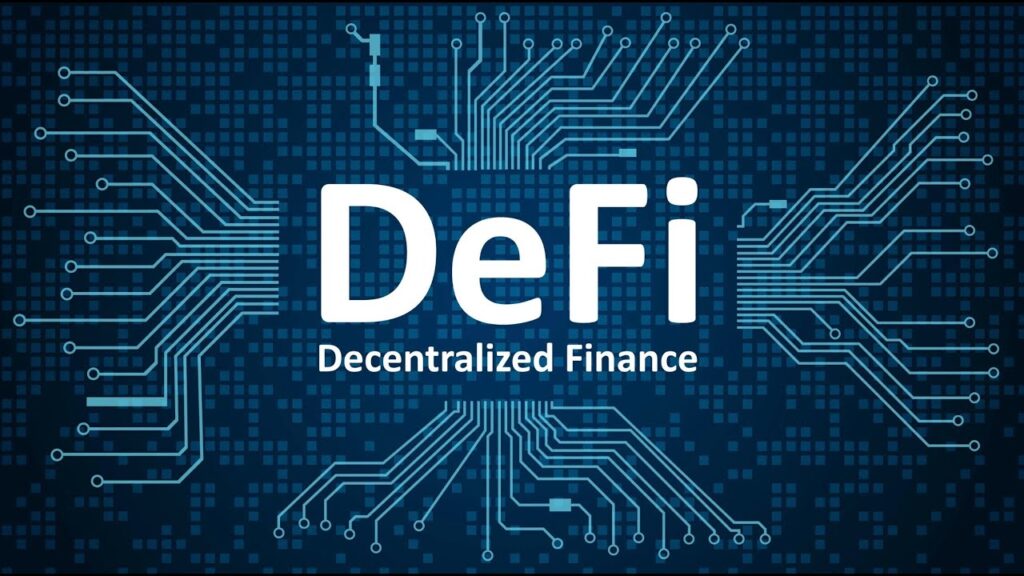DeFi Emerges as Yemen’s Millions of people in war-torn Yemen lack access to even basic banking services due to a collapsing financial system and international restrictions. The war has split the central banking power of the nation and destroyed many of its conventional financial institutions during the last few years. Yemenis have thus been compelled to learn fresh approaches to save their money, get remittances, and handle transactions. They are looking to distributed finance (DeFi), a digital substitute for banks run on blockchain technology, more and more.
DeFi offers safe, peer-to-peer banking instruments while allowing one to circumvent failing infrastructure and constraints. For people disconnected from the global economy, DeFi has evolved into a lifeline even if it is still a niche solution. In Yemen’s complicated financial scene, this technology is not only surviving but also starting to flourish without a working banking institution.
Conventional Banking Divide Given Conflict and Sanctions
The protracted civil war and international sanctions have profoundly changed Yemen’s conventional financial system. Rival administrations in the north and the south divide the central bank of the nation, which results in different monetary policies and frozen financial activities. Commercial banks struggle with liquidity, are frequently unable to handle payments, and several have closed branches totally. Concurrent with this, penalties imposed by foreign players have further limited the flow of foreign money and financial aid into the nation.

Yemenis find it quite difficult under this circumstances to pay for goods and services, safely save money, or get money from overseas. The outcome has been a great financial exclusion of the public, which forces people and even some companies to investigate substitutes outside the controlled financial structure. Under these circumstances, DeFi has become one of the few viable routes to obtain funds and engage in commercial activity free from institutional or government intervention.
DeFi rises as a lifeline in a fractured financial terrain
Yemenis are starting to use DeFi systems as a workable way to get above the restrictions of the conventional financial system. Built on public blockchains like Ethereum and Binance Smart Chain, these systems let consumers access loans, trade currencies, earn interest, and transport money all around without a central bank or middleman. For many in Yemen, DeFi marks release from the financial isolation brought on by political strife and sanctions.
Commonly utilized stores of value and medium of exchange, cryptocurrencies including Bitcoin and USDT (Tether) assist individuals protect their money from the extreme devaluation of the Yemeni rial. Yemenis can connect with DeFi apps and wallets with simply a smartphone and internet access, therefore restoring some degree of financial agency in their life. Adoption of DeFi illustrates the nation’s resilience and adaptation under adversity, despite obstacles including low infrastructure and technical knowledge.
Dangers and difficulties of depending on unregulated finance
DeFi entails concerns even if it presents a substitute for the failing banking industry. Lack of consumer protection or regulation is one of the key difficulties. Cyberattacks, frauds, and technical flaws on DeFi platforms are common targets for hackers; all of these could cause user losses. Furthermore, Yemenis new to the field are prone to make mistakes or become victims of fraud since insufficient financial literacy around these advanced technology.

DeFi’s usage for illegal uses—such as money laundering or sponsoring extreme activities—which can attract more global scrutiny and possible crackdowns raises still another issue. Operating in a legal gray zone could overwhelm the advantages of DeFi Revolution without appropriate protections. Having said that, many in Yemen find that the total lack of access to any other financial tool more than offsets these hazards.
DeFi Simplifies Remittances and Direct Humanitarian Assistance
DeFi’s main application in Yemen is helping family members living overseas send remittances. Because of sanctions or banking restrictions, traditional remittance channels as Western Union or MoneyGram are delayed, costly, and sometimes inaccessible. DeFi, on the other hand, uses cryptocurrency accessible in minutes to enable quicker and less expensive peer-to–peer transactions. Humanitarian groups seeking to provide relief straight to beneficiaries without passing through government-owned financial institutions that can be unstable or corrupt are also looking at these instruments.
Blockchain-based solutions of aid delivery provide money traceability and transparency, therefore lowering the danger of theft. For Yemenis battling poverty and violence, these developments might increase their access to food, medicine, and shelter among other basics. DeFi might become the accepted way for people to get assistance from both loved ones and non-governmental organisations running all around the globe as more people realise these advantages.
Summary
Yemen’s rising DeFi acceptance reflects a larger worldwide trend whereby individuals resort to distributed solutions when conventional systems fail them. DeFi provides a flexible, safe, and globally linked substitute in a nation where banks have grown erratic, value of money is erratic, and foreign transactions are blocked. Yemenis are using creativity to take back control over their money despite the technical constraints and hazards connected with unbridled platforms. DeFi’s grassroots acceptance shows not only a technology but also a social change as individuals are building fresh systems of trust outside conventional power systems. DeFi may be a long-term instrument for economic resilience in Yemen and other areas suffering comparable crises if correctly supported and scaled. Under hardship, the Blockchain Revolutionizing is showing itself to be more than just a jargon; it’s a lighthouse of hope.

